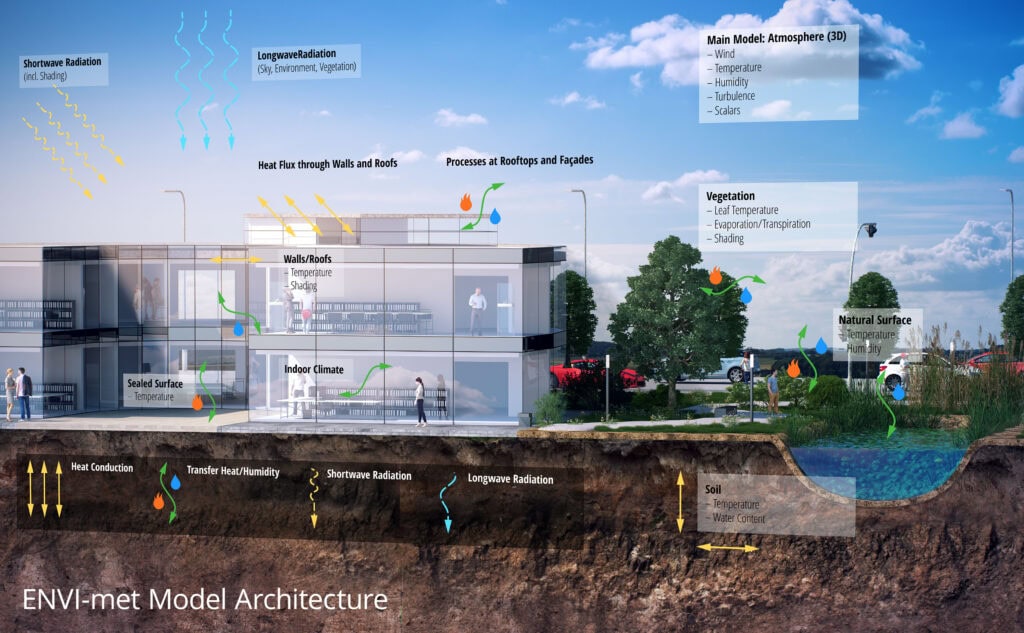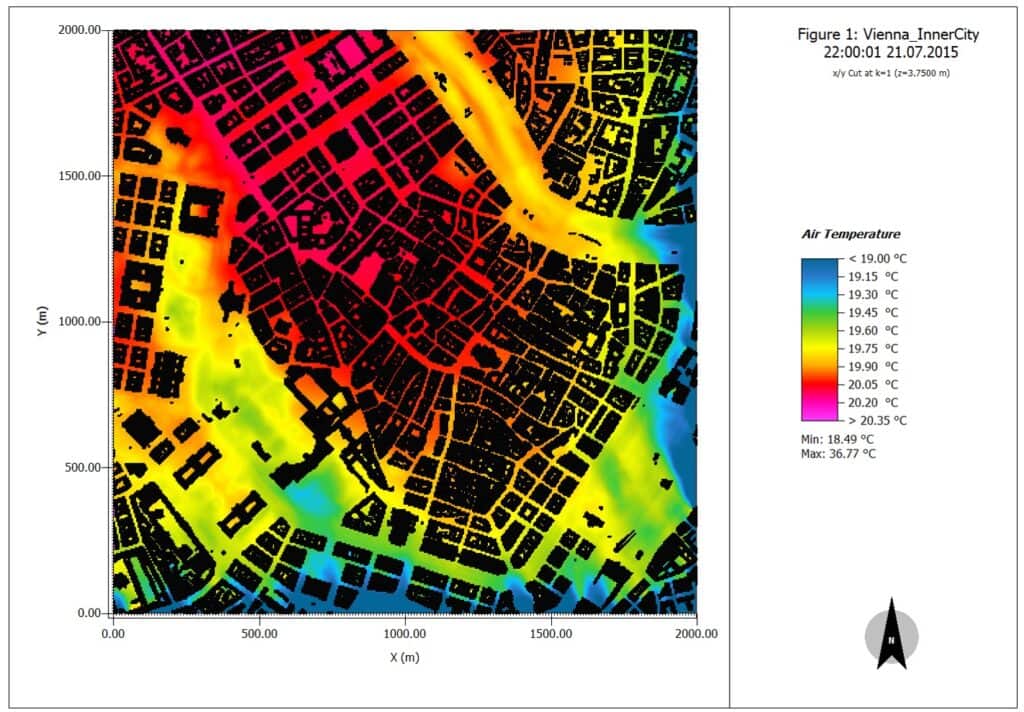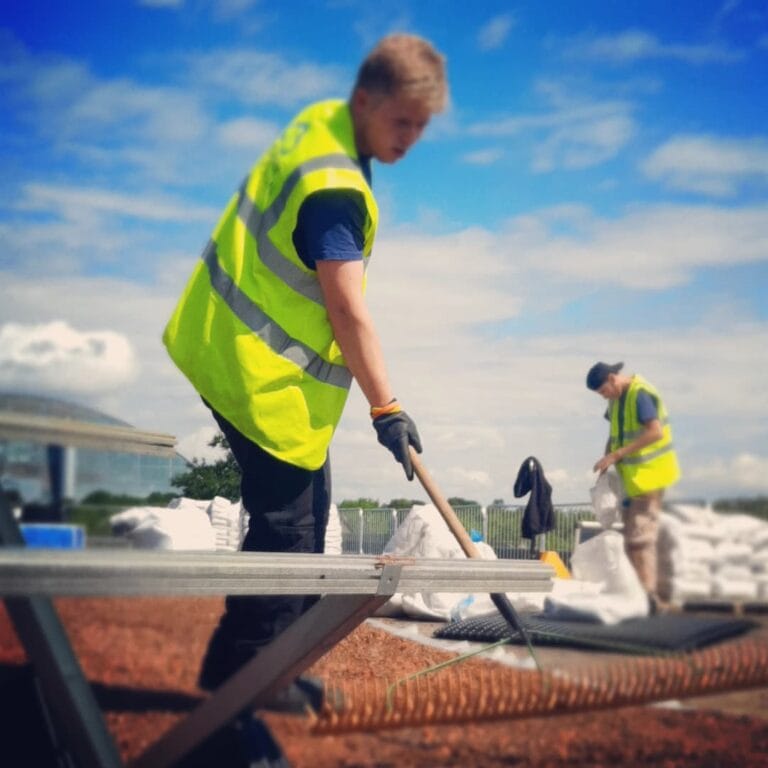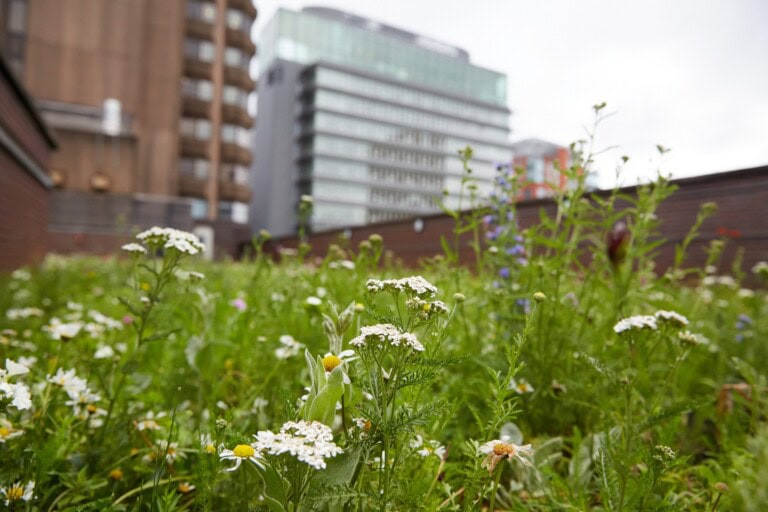Microclimate modelling solution

Problem Addressed
This solution was sourced in response to UKGBC’s Innovation Challenge: “How can communities and local authorities implement, maintain, and assess the impact of nature-based solutions to enhance climate resilience?”
Urban landscapes are one of the most heterogenous environmental systems one can find. The mixture of man-made materials, building cubature and infrastructural elements on the one side but also the presence of road side vegetation, urban parks and linkages to the rural surroundings generate a highly specific microclimate known as the urban climate. Overheating of the outdoor environment, poor air quality and heat storage in buildings are the most dominant challenges for architects and urban planners when designing this environment. These challenges will become even more urgent in the face of global climate change and associated heat waves.
Nature-based solutions (NBS) offer a low-energy approach to improve outdoor microclimate conditions. As these conditions are also the embedding climate framework for all existing and planned buildings, an improvement of the urban microclimate will also lead to improved building energy performance. However, NBS often include living organisms such as vegetation. The performance – and the sustainability in terms of vitality – of these solutions highly depend on the exact location inside the complex urban environment. The three-dimensional microclimate simulation model ENVI-met allows users to design, simulate and analyse the impact of different NBS on the urban microclimate for any urban setting for any climate zone around the globe.
Verification & Case Study
ENVI-met is a tool to analyse and verify the effects of other solutions proposed such tree plantation, façade or rooftop greening or other NBS. The effects are shown in various microclimate parameters such as wind field changes, radiative fluxes, air temperature, humidity or outdoor thermal comfort just to name a few.
Case Study
The new city quarter EUROGATE I+II on the Aspangründe is one of the flagship projects in the City of Vienna to demonstrate how the use of green infrastructure as an integrated tool in the whole planning process can reduce urban heat stress. ENVI-met was used to analyse the impact of different greening scenarios on thermal comfort and to supply input data for building energy modelling.
Using only passive green strategies, ENVI-met showed the local air temperature on urban streets could be decreased by 2 °C or more both for daytime and night-time scenarios. The reduction of reflected solar radiation due to facade greening and its impact on thermal comfort could be analysed.


This page presents data, evidence, and solutions that are provided by our partners and members and should therefore not be attributed to UKGBC. While we showcase these solutions for inspiration, to build consensus, and create momentum for climate action, UKGBC does not offer commercial endorsement of individual solutions. If you would like to quote something from this page, or more information, please contact our Communications team at media@ukgbc.org.
Related
Climate X – Climate Risk Data Analytics

EarthScan

Green roofs for people and nature

Smart Blue-Green Roof

